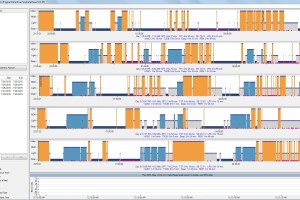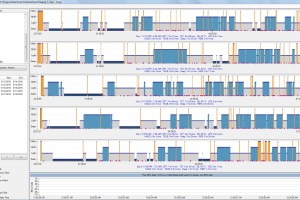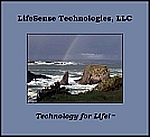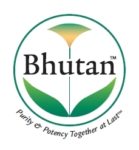UPDATE
Precision Cannabis, Healthy Sleep, and Alzheimer’s Disease: Promising Links?
We exhibited and presented about LifeSense Technologies, LLC cannabis research at
NW Cannabis Classic in Tacoma !
Presenting on main stage at NWCC: Our Question and Answer Period Click for video, courtesy of Patrick Guanzon, Lakeview Family Wellness in Kenmore, WA.
Photos courtesy of Maria Castro.
Histograms of Sleep in Human Subjects
EEG (electroencephalograph) data showing unhealthy and healthy sleep.
(orange = difficulty sleeping)
CLICK TO ENLARGE
for links about cannabis, healthy sleep, and neurodegenerative disease click HERE
beta version
The CMAP™ Project
(an initiative for better cannabis science and education)
The Cannabis Research Challenge:
In the context of the currently shifting political, social, and legal environment, cannabis researchers are still challenged by significant limitations in applying appropriate scientific standards. Otherwise-conscientious researchers experience great difficulty in adhering to the rigorous conventions and protocols of the scientific method.
The absence of comprehensive, relevant standards and methodology for conducting in-depth cannabis research has partially been the result of prohibitionist social policy for more than 70 years. This is compounded by the fact that most research protocols ignore the broad variability in potentially “active” compounds expressed across the broad spectrum of existing cultivars. In much cannabis research we note a significant limitation in the failure to address the complex combinations of cannabinoids, terpenes, and other plant molecules; methods of cannabis administration; as well as the set and setting of research subjects.
The absence of a sophisticated understanding of practical cannabis use is also evident in a failure to adequately accommodate research issues such as drug tolerance, differential sensitivity across subjects/patients, and specificity in matching cultivars to subjects/disorders. Correcting this failure appropriately requires considerable practical knowledge, not readily apparent to researchers if they are outsiders to the complex modern culture of cannabis use — whether medical, creative, or recreational.
Cannabis research is politically sensitive, in that a large minority of the electorate continue to promote a culture of prohibition. This, coupled with the fact that cannabis is a federally scheduled and restricted substance requires additional care in identifying and eliminating potential research biases.
The increasing body of knowledge regarding the clinical benefits of cannabis is largely derived from clinical observation. As such, future research investigations require high levels of diligence and transparency regarding adherence to good scientific methodology, including identification of such variables as the specifics of the cultivar and the bio-active molecules studied.
In addition, identification of the sources of funding should be noted to address conflict of interest issues; but also because NIH-funded research requires use of a sole-source cannabis grown by the National Institute on Drug Abuse; it is typically without published QA/QC standards or specifications re the extensive variety of combinations of cannabinoid and terpene content for testing.
The CMAP Approach:
We have responded to this research challenge by initiating development of The CMAP Project. Its goals include developing our proprietary, but freely available, cannabis multi-analysis process™ methodology to facilitate cannabis research. We are developing a comprehensive guide that can serve cannabis researchers in designing robust, informative and replicable studies. (The CMAP Guide to Cannabis Research in Human Subjects is HERE.)
In addition, the CMAP team will develop and implement a plan to contribute to achieving our CMAP goals as initially formulated below. We are collaborating with other cannabis-focused organizations, scientists, medical professionals, patients, cannabis users, cannabis activists, and the public to challenge questionable science and promote good science in the conduct of cannabis research studies.
Our CMAP Goals are to
1. Improve research methodology: to create a relevant methodology for applying advanced analysis criteria to cannabis research. To that end, development of The CMAP Guide to Cannabis Research in Human Subjects is HERE.
2. Encourage scientific standards: to encourage standards of cannabis research that adhere to the scientific method by partnering with other cannabis-focused organizations, scientists, medical and health care professionals, patients, cannabis users, cannabis activists, and the public.
3. Analyze cannabis research: to provide a tool to classify cannabis research as to whether it does or does not adhere to the scientific method.
The initial priority will be to identify research used in the support of prohibitionist policy which fails to adequately adhere to the scientific method and deconstruct it using expertise from the cannabis industry, input from the cannabis community, and scientific peer review.
We will call for retraction of published studies that are not up to standards and make these calls part of the CMAP plan to encourage scientific standards in cannabis research.
4. Educate the public: to raise the level of public awareness and sophistication re the importance of cannabis and medical marijuana; to assist in engaging the public in support of these goals culturally and financially.
5. Help shape public policy: to provide useful background and to demystify cannabis research for better-informed, positive legislation.
THANK YOU for your interest in the promising links between ENSEMBLE precision cannabis and healthy sleep. With all the other benefits of healthy sleep comes the possibility of slowing the progression of neurodegenerative diseases.
Your contribution to LifeSense Technologies in any amount will be gratefully accepted.
_______________
* Your donation WILL support LST’s scientific research, but it is NOT tax deductible. LifeSense Technologies, LLC is NOT a non-profit organization.
Sponsors:
The CMAP Team Founders:
• Robert Bornn, psychophysiologist – CMAP founder, author, editor-in-chief
• Laura Worth, MSW – CMAP co-founder, author, managing editor
• LifeSense Technologies, LLC – CMAP founding sponsor (Robert Bornn and Laura Worth, founders and principals)
A preliminary list of some of the individuals who serve as founding CMAP advisors:
• John Brown (CTO, Analytical 360, cannabis testing laboratory, certified by Washington state under I-502). • Lex Pelger (writer, scientist, and Shulginist). • John B. Davis (NCIA, Boardmember; CCSE, Executive Director; Seattle HempFest/ SEANPaC, COB; NWPRC, CEO). • Shawn DeNae Eddy (CCSE; ASA-WA; Women of Weed, co-founder; MJBA-Women’s Alliance, founding member; Washington Bud Company, CEO).
The CMAP founders are inviting additional professional, business and scientific expertise to join the CMAP team, including cannabis testing laboratories, organizations, healthcare and other professionals, producers and processors, and I-502 retail organizations.
Contact Information:
Robert Bornn and Laura Worth, MSW (robert@bornn.com or laura@coachworth.com) robert@CMAP420.org or laura@CMAP420.org
Founding Sponsor: LifeSenseTechnologies, LLC – (206) 463-9283
Copyright © 2014-2018 by Robert Bornn and Laura Worth.
All rights reserved.
Photos by Robert Bornn unless otherwise noted.
Web site by Laura Worth Web Design.
LifeSense Technologies, Technology for Life, ENSEMBLE Precision Cannabis,
ENSEMBLE Precision, ENSEMBLE, Precision Cannabis,
ENSEMBLE Lullaby, ENSEMBLE Relief, and ENSEMBLE Kiss
are trademarks of LifeSense Technologies, LLC.
CMAP, CannabisMap, and Cannabis Multi-Analysis Process
are trademarks of Robert Bornn and Laura Worth.
The CMAP™ Guide was designed for sharing widely to promote better
cannabis science. If you share this copyrighted material, please be sure
to include this language and the copyright notice itself.
NOTICE: Under U.S. federal law and the laws of many states, use or possession of cannabis and preparations from cannabis are illegal unless under an approved exemption by the Food and Drug Administration.
Information on these pages is educational. Nothing on these pages is intended to support, encourage, or promote the illegal cultivation, possession, use, trade, or commerce of cannabis or the breaking of any law.
In the state of Washington, all use of the CMAP Guide, if with cannabis, must be in strict compliance with Washington state law RCW 69.51A or I-502.
MEDICAL DISCLAIMER: The CMAP Guide is not intended to diagnose, treat, or cure any medical condition. The Food and Drug Administration has not reviewed any of the statements herein.
Please consult your health professional before starting any new health care program or for any advice regarding diagnosis, cure, and treatment of any disease or disorder.


















